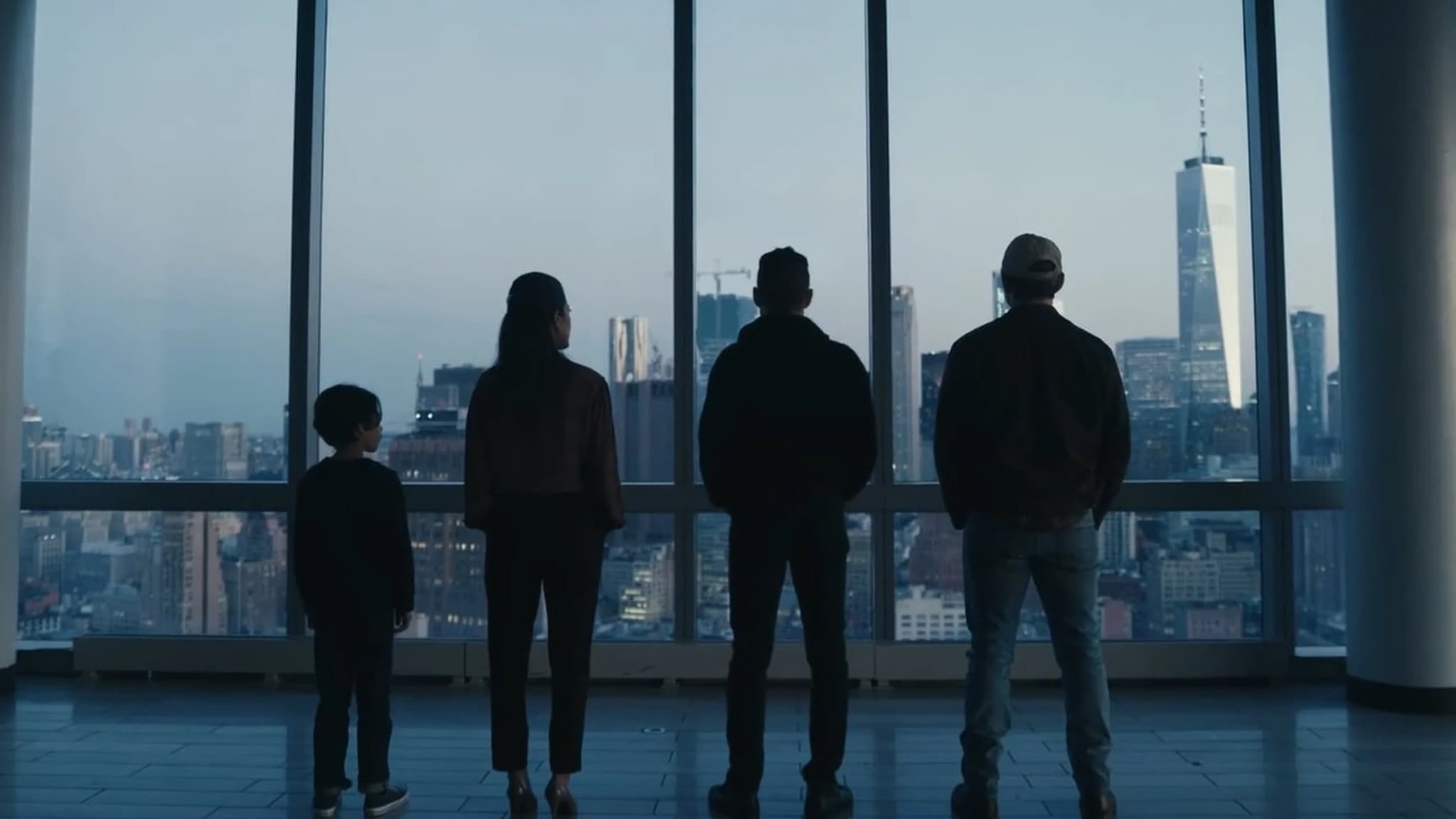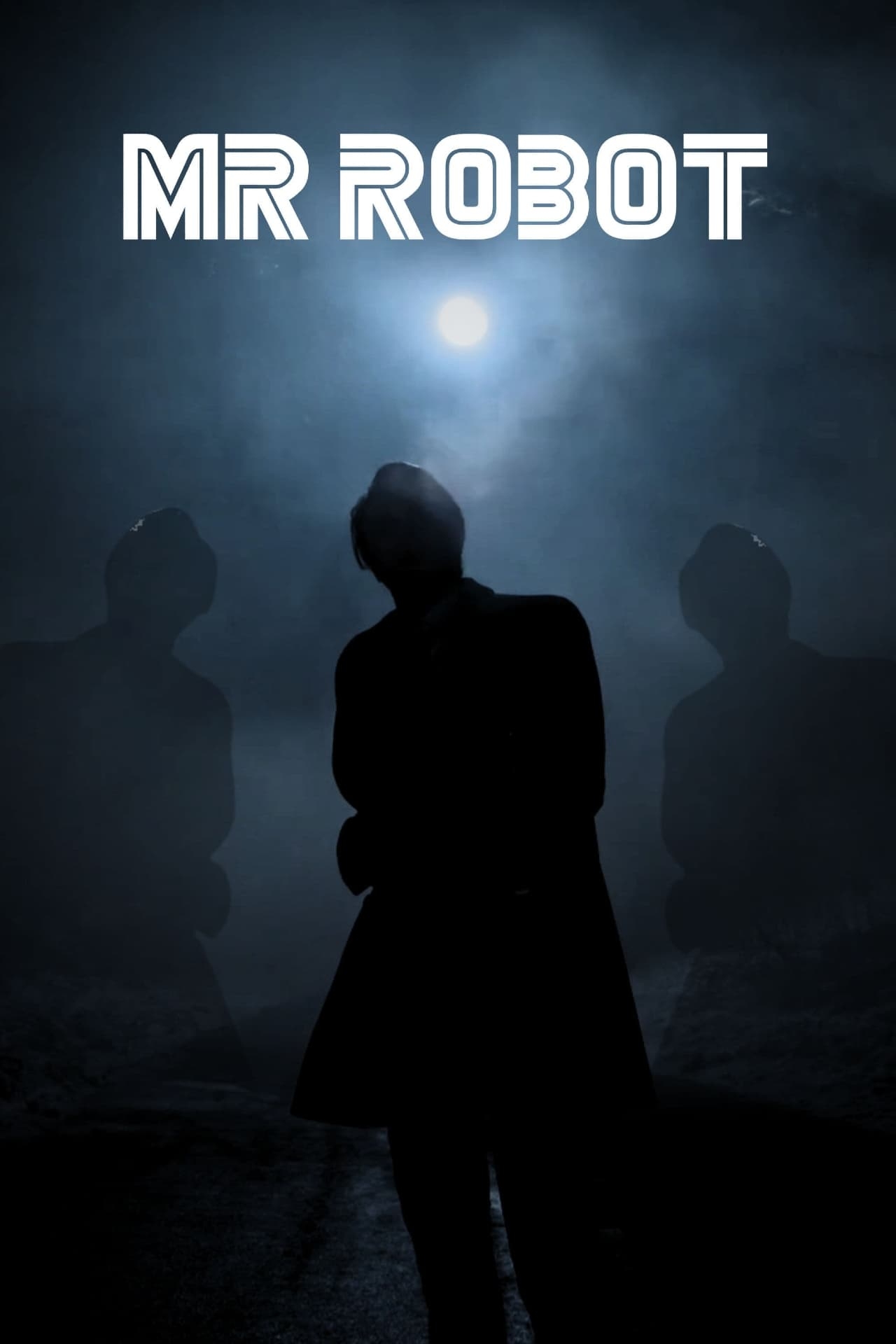
Mr. Robot (2015)
Mr. Robot (2015)
one of the greatest things i’ve ever experienced. for forty-four episodes, mr. robot refused to let you rest. it never left you satisfied, it pulled the rug under you constantly, and it always felt like it was a few steps ahead of even the smartest viewers. inconclusive series finales, ridiculous gimmick episodes, and constant plot-twists made mr. robot seem like it was laughing with (or maybe at) you. every time you got up on your feet, it would push you back down and you would find yourself loving it for that. the show is characterized by being in a constant state of subversion, a never-ending whirlwind of surprises… and now it’s at its end. in one of the greatest episodes i’ve ever seen, mr. robot let’s go.
“come on. this only works if you let go too.”
[SPOILERS]
how do you end a show like this? mr. robot’s whole persona is built off of expanding itself in shocking ways, whether that be with its scope broadening or its characters gaining new depth. think back to tyrell’s backstory in “legacy” (3x3), the prison plot-twist in “handshake” (2x7), even whiterose’s recent suicide in “exit” (4x11). how do you end a machine that’s built to keep going, and to shock you for that? how do you get that to lay down?
it starts by staying true to itself. before mr. robot is neutralized, “hello, elliot” delivers one last mindfuck, one last brutalization of your expectations. at elliot and angela’s wedding, the attendants are wearing fsociety masks which clues you in that whiterose’s machine didn’t work. mr. robot tries to explain the situation, but not fast enough to prevent elliot from chasing after a far-spotted angela and triggering the show’s final dream-like sequence. after running down a seemingly endless corridor, we see the scene originally from 1x4 where angela confirms mr. robot’s third personality idea, referring to him as “the mastermind.” it’s here where the chaos really starts, as the mastermind now starts reevaluating his life.
he sees mr. robot at the end of the long corridor, to which he has to chase him. this is representative of the majority of season one, where mr. robot was a sort of guidance to starting fsociety. it also further implies the power that he holds over elliot/the mastermind, which he exerts by pulling him in and out of his subconscious (see 2x6 and the recent 4x11, thank you to @ShaneVendrell for pointing out his superiority to me). he then sees his father’s face on all the visitors of coney island. this is representative of the twists later that season, where his father’s identity and legitimacy is called into question. he finds and chases him through a crowd while security alarms blare and gates slam. this is representative of his days in prison, where he was crammed next to and in constant confrontation with mr. robot, yet still oblivious to his real plans (hence being pictured ominously in a crowd).
the mastermind finally catches up and pulls back his shoulder to reveal tyrell, who then shoots him. this is of course representative of “python part 2,” (2x12) where he learns of mr. robot and tyrell’s plans and is then shot. it actually directly parallels those moments, as the mastermind originally thought that tyrell was just another one of his hallucinations, so it makes sense for their identities to be so easily confused like this. a crowd forms around them, cheering after the gun goes off. this represents the many people who exploited fsociety for their own benefit, namely whiterose and price, despite the harmful effects their involvements would have. worth noting that this continues the linear order of events as most of the exploitation really started after season two, with things like the seventy-one buildings twist. the mastermind is then depicted as being dragged into a ditch dug by tyrell. this, to me, represents elliot’s state of mind in the later seasons of the show as his grip on the revolution slips. to be clear, i’m mostly referencing mid/late season three and early season four, but early season three can also work. it can also represent how surrounded by death he was in the later seasons of the show. we also hear an animal screeching, the same that rang throughout the woods in “404 not found” (4x4) as tyrell accepted death. he’s tossed in the pit, and after hearing angela’s voice, wakes up in krista’s office. you can interpret abgela’s voice however you want, it could be both a reference to her death as well as a reference to “power saver mode,” where elliot woke up to angela after the tyrell shooting. and finally, concluding the chronological structure, him waking up in krista’s office is representative of the “407 proxy” abuse reveal.
by now, the mastermind has reflected on his journey and is starting to put the pieces together. he keeps denying his identity, telling the therapist “i know where you’re going with this. it’s not true.” his role as just an embodiment of anger is exposed through a series of flashbacks, shown over krista’s narration. the mastermind learns he isn’t the real elliot but refuses to give up control, waking up to darlene. it’s through this conversation that he reflects on the reality and validity of his “life,” saying he’s not real as they grip each other’s hand. after darlene convinces him he’s real, the mastermind changes his perspective, shifting to the understanding that he’s real, but that he’s not elliot. he’s merely a part of elliot, made to make the world safer for him as an embodiment of his rage and dissatisfaction, all stemming from his inability to cope with his loneliness and abuse.
and now, the mastermind realizes his purpose. and with that comes the understanding that his purpose is completed. whiterose is dead, the rich have been obliterated, and wealth has been distributed equally among the working class. he gave elliot the world—and the excitement—he always wanted. “you saved the world, elliot alderson” darlene says. and with her remiscing on the real elliot, asking if he’s doing okay and saying she misses him, the mastermind realizes he has to give up control.
“the mastermind” plot twist is more than a brilliant re-contextualization of the series and its protagonist. it is the weight of what it really means to end a show like this. to end a show that’s connected with so many people, as well as a show hellbent on absolutely battering you throughout its runtime. one of the few shows that has the courage to acknowledge the world we live in, to critique it but have the heart to want to move forward with it. no, the mastermind is more significant. he is the personification of the show. mr. robot starts and stops with him, he is the drive that pushes the world forward and brought it about for us in the first place. he holds a perfect thematic parallel with it, both being characterized as the embodiment of rage, dissatisfaction, and the want for a better world. all things considered, the mastermind is mr. robot.
this is what makes these ending minutes so perfect. the thematic harmony between the mastermind and mr. robot creates a laser-tight focus that lets these final minutes become a triumph. because in that theatre, we are watching more than just a character admit to his end. we are watching this behemoth of art, this cultural artifact notorious for its ambitions and relentlessness, decide to settle. it’s a testament to the human spirit and a representation of our shared human experience, of hope, of loss, of struggle. it’s legacy will live on like the king sung about in “outro.” even if this centuries people will one day die out, even as mr. robot’s name fades into obscurity, the art will persevere “now and forever,” in the same way that elliot and the mastermind have made their mark on the world.
how does mr. robot let go? in celebration. of humanity and its art, of its producers, of its viewers, and most importantly, of itself. watching a show like mr. robot draw to a close is hard, i can only be happy i was there to experience it. i’m ready to let go.
“I’M THE KING OF MY OWN LAND
FACING TEMPESTS OF DUST, I’LL FIGHT UNTIL THE END
CREATURES OF MY DREAMS, RAISE UP AND DANCE WITH ME
NOW AND FOREVER, I’M YOUR KING.”
Loading




